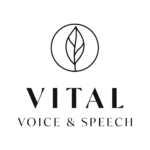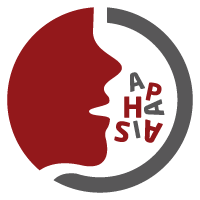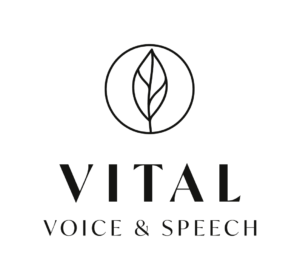Aphasia is an impairment of language which may affect a person’s ability to comprehend language, their ability to express themselves or both. It typically occurs as a result of a neurological change or injury to the brain. A neurological change can include a stroke, brain tumor, brain injury or a degenerative neurological disorder. Degenerative neurological disorders are brain diseases that get worse over time. There are different types of aphasia that may affect one or more language areas.
Types of Aphasia
Global Aphasia
Global aphasia is the most severe form of aphasia affecting both the comprehension and expression of simple language. It also impacts the person’s ability to read and write. They will have difficulty following instructions or comprehending verbal information. Verbal expression will be limited. Nonverbal communication abilities may also be impacted. In the case of global aphasia there are injuries to multiple language-processing areas of the brain. These injuries to the brain language centers result in difficulty with understanding spoken language, accessing vocabulary, using appropriate grammar, and producing words and sentences. Speech and language therapy should begin as soon as possible after a diagnosis of global aphasia.
Broca’s aphasia (expressive or non-fluent aphasia)
Broca’s aphasia is also know as non-fluent or expressive aphasia. A person with this type of aphasia will have difficulties with expressing themselves verbally. Verbal expression skills may experience difficulties producing the right sounds or finding the right words. Utterances may be limited to less than four words with difficulty producing complete sentences including nouns and verbs.
Language comprehension may be preserved and the person will be able to follow simple directions, comprehend simple questions and simple conversation. They may have difficulty understanding sentences with more complex grammar structure. Persons with Broca’s aphasia may be able to read and have more difficulty with their writing skills. Speech therapy is helpful to rehabilitate their functional communication skills.
Wernicke’s aphasia (receptive or fluent aphasia)
Wernicke’s aphasia is also known as receptive aphasia or fluent aphasia. This type of aphasia affects a person’s ability to comprehend spoken words. The person will have difficulty following directions and comprehending conversation accurately.
They will be able to produce sentences in their speech with appropriate rate and intonation however, the sentences may not make sense to their listener. Sentences may contain non-existent words and the person may not realize that they words are non-existent or irrelevant to the sentence. Reading and writing skills are also often impaired. Speech therapy is helpful to rehabilitate their functional communication skills.
Mixed Non-fluent aphasia
WPersons with mixed non-fluent aphasia will exhibit significant difficulty with their speech being effortful and limited similar to Broca’s aphasia . However, they will also have difficulty with their comprehension of speech similar to Wernicke’s aphasia. Reading and writing skills will also be impaired. Speech therapy is helpful to rehabilitate their functional communication skills.
Anomic aphasia
Anomic aphasia is typically a milder form of aphasia in which a person will be able to verbally express themselves in sentences and have a conversation. Speech is fluent and grammatically correct. However, they will be unable to name items or find the words at the moment that they want to during conversation. These word finding issues lead to frustration during communication.
Comprehension and repetition of language is not impaired in anomic aphasia. Reading skills are typically functional however, writing skills may also exhibit similar word finding difficulties. Speech therapy is helpful to rehabilitate their functional communication skills.
Primary Progressive Aphasia (PPA)
Primary Progressive Aphasia (PPA) is a neurological issue in which the language abilities of person become slowly and progressively impaired. PPA is caused by neurodegenerative diseases where deterioration of brain tissue used for speech and language. Initial symptoms may be with speech and language and memory loss may often occur later.
PPA may begin as a subtle language disorder and progress to an inability to speak in more severe cases. The type or pattern of the language impairment may differ from person to person. Persons with PPS will continue to have their communication skills deteriorate. They
may benefit from speech therapy during the course of their illness by acquiring new communication strategies from speech-language pathologists.
Other varieties
In addition to the types of aphasia described above, there may be individuals who do not always fit the exact descriptions and have other varieties of aphasia. There may be different combinations of impairments or isolated single impairments after injury to the brain. For example, a person may experience only alexia or the loss of the ability to read. They may only experience agraphia or loss of the ability to write after a stroke. Others may experience the loss of the ability to complete math calculations. Speech therapy is helpful to rehabilitate their functional communication skills.
Speech Therapy for Aphasia
An experienced clinician who specializes in helping adults rehabilitate their communication difficulties after a stroke or brain injury is an essential part in stroke recovery. Speech therapy for aphasia involves working on all the areas affected and maximizing the abilities that the person has retained in order to improve those abilities that have been lost. It also involves learning and using compensatory strategies for those abilities that continue to impact a person’s communication skills. Speech therapy for adults with aphasia can help the person feel less frustrated and help families learn how to better communicate with their loved on after a stroke or brain injury. Family and caregiver involvement is also important in the process of language rehabilitation.
For more information about aphasia click here.




